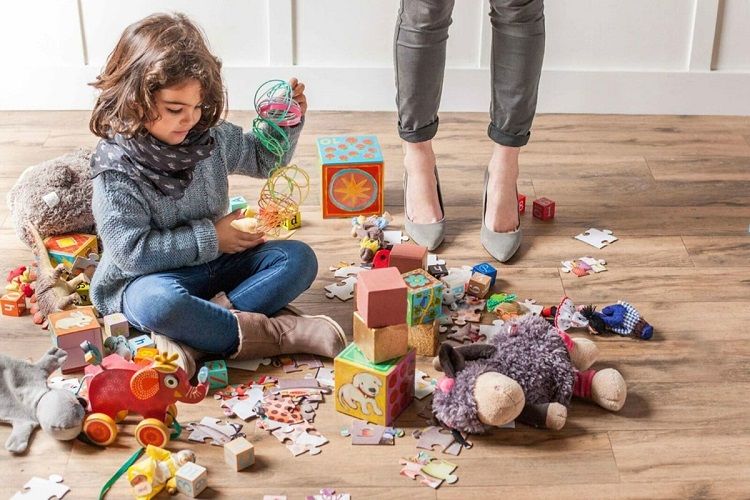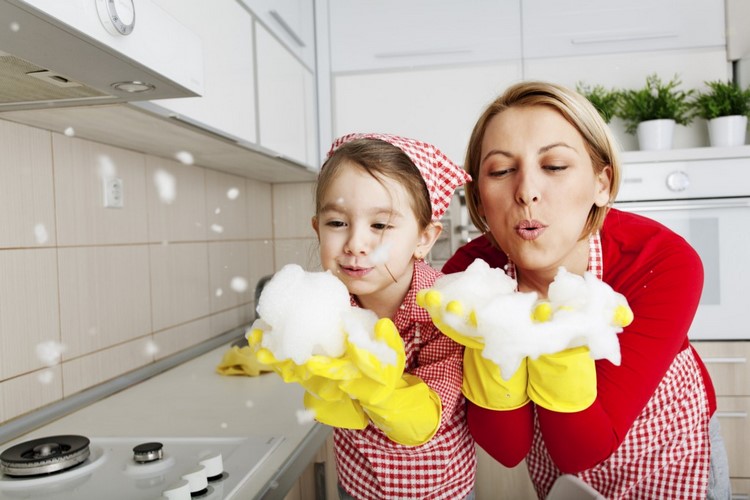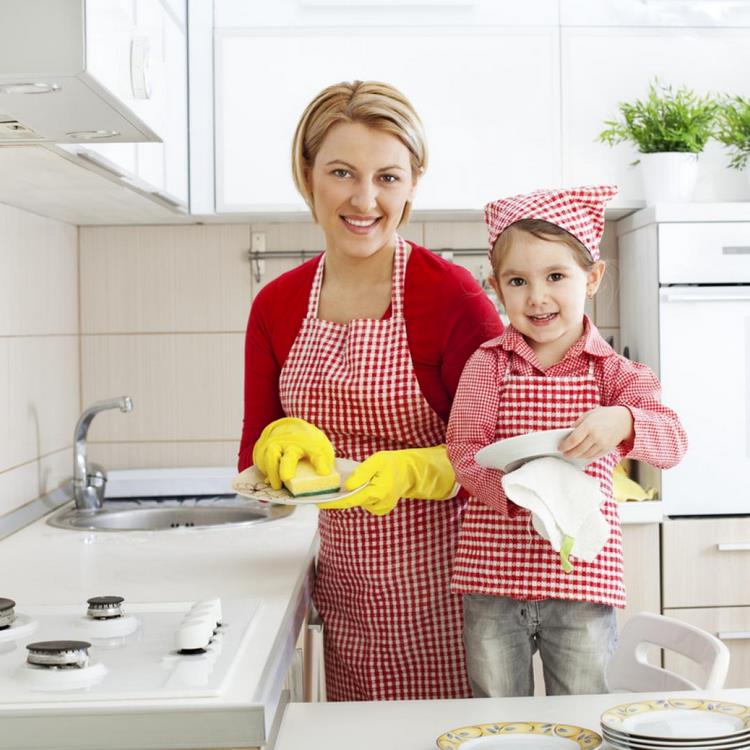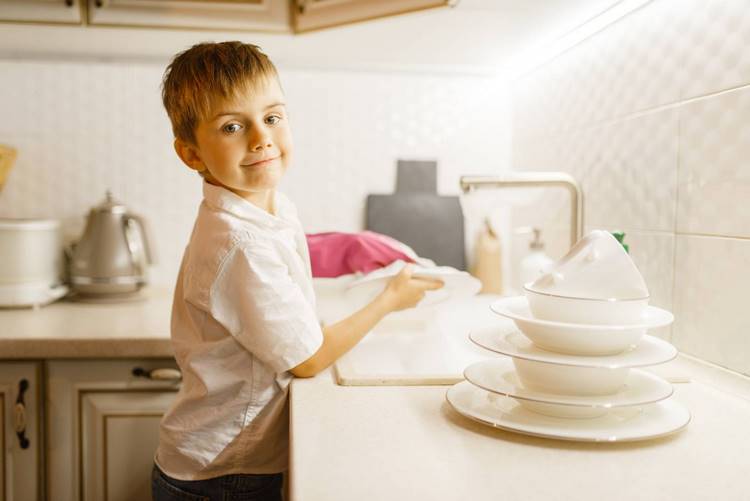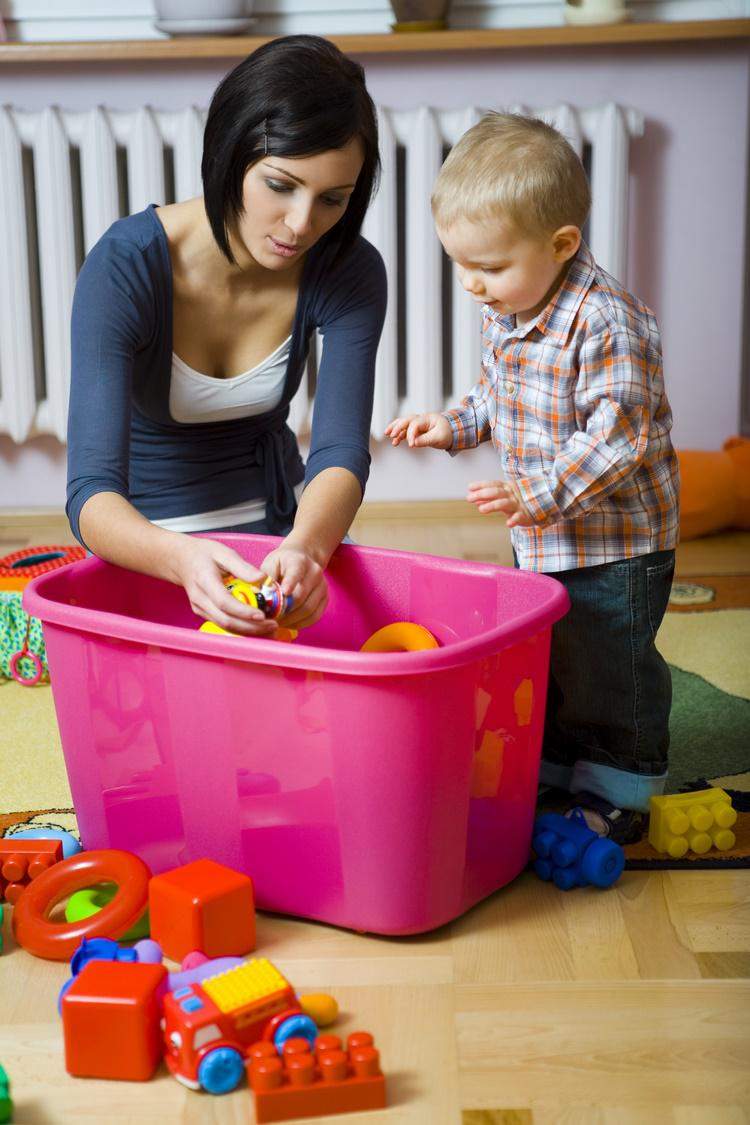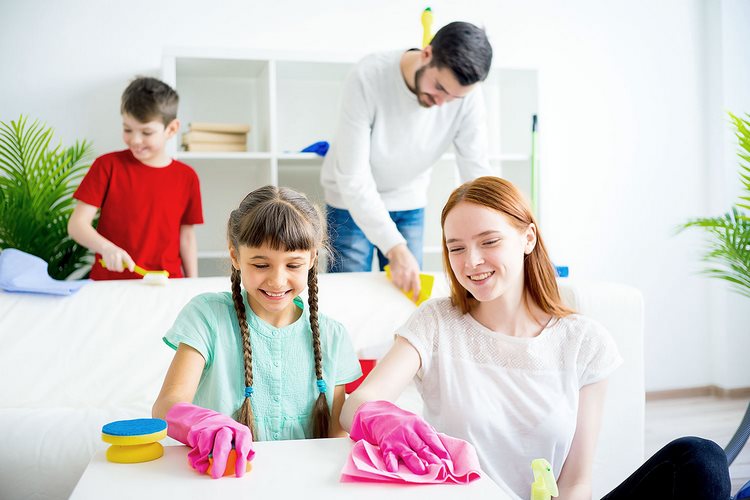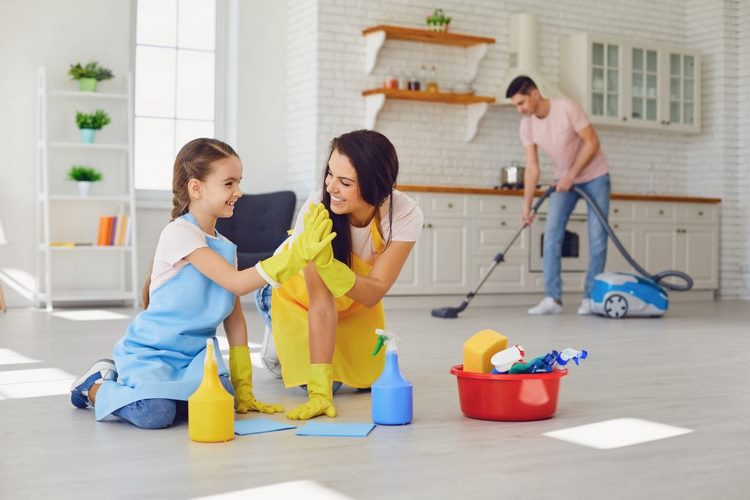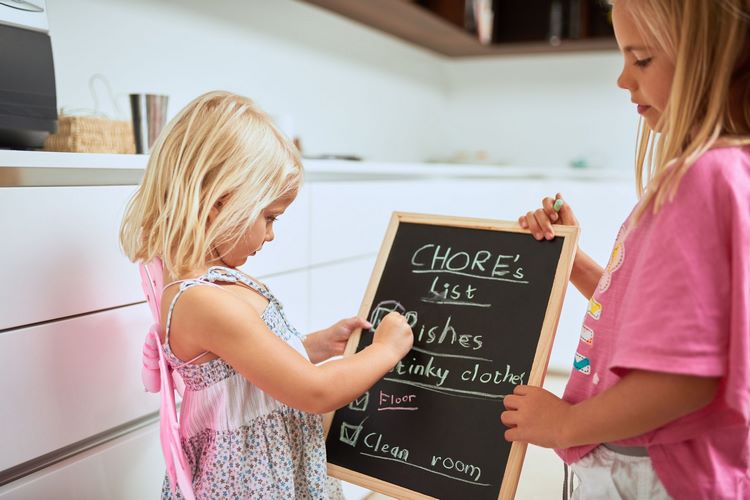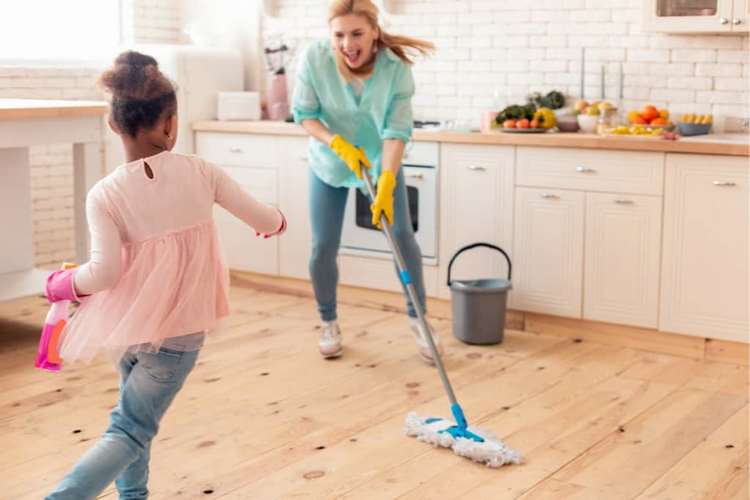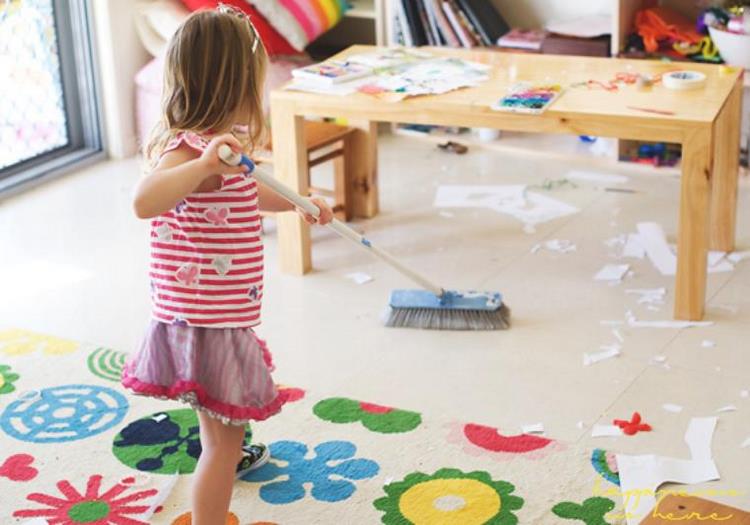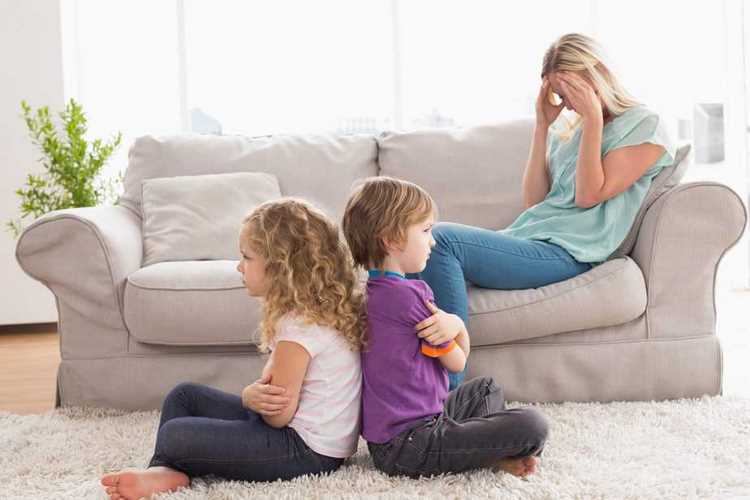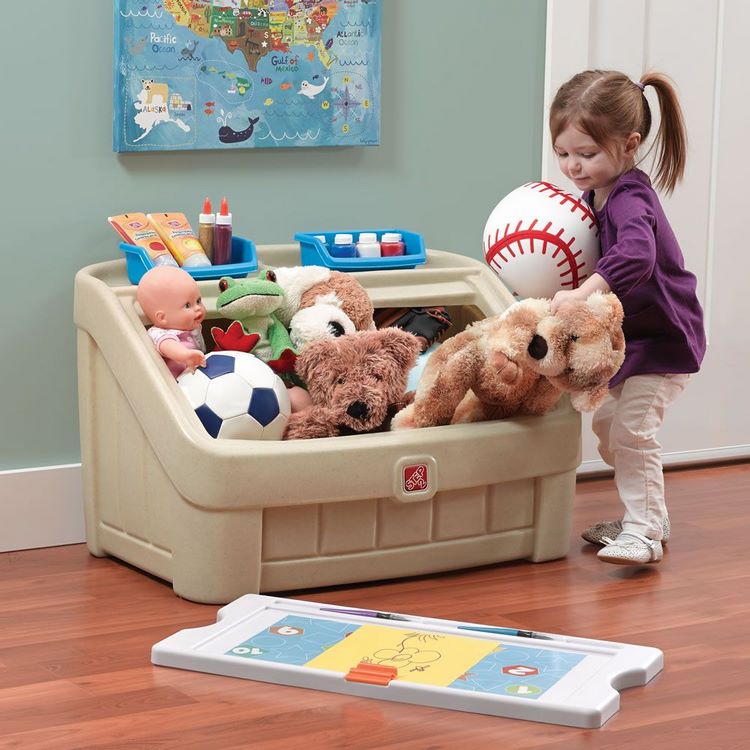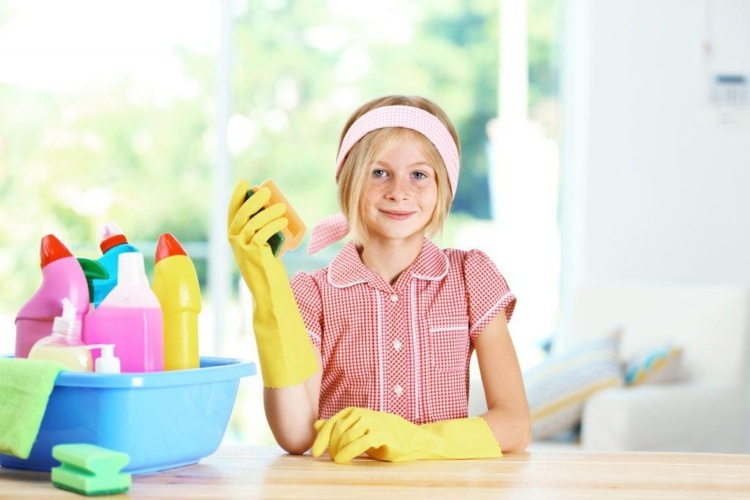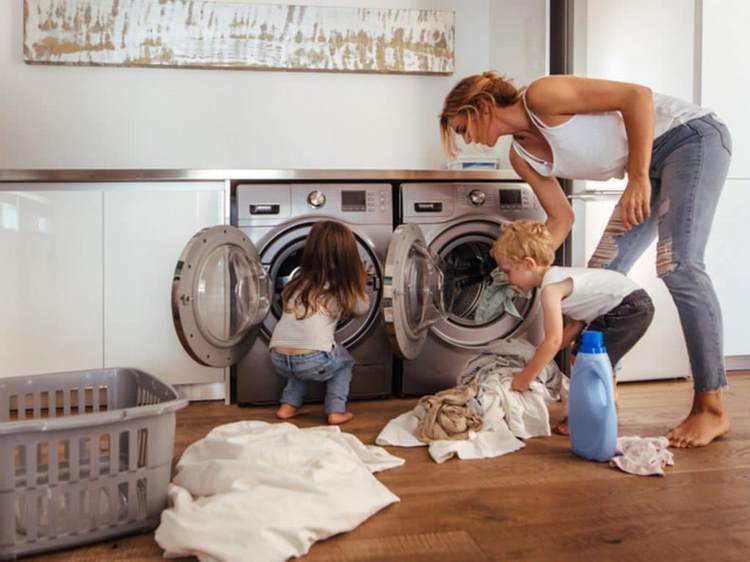Cleaning with children can be fun or disaster. It all depends on the parents approach and attitude. How to involve kids in house chores? Can we make it a pleasant pastime? Yes, of course! We shall give you some important do’s and don’ts which will help you make cleaning fun for kids.
You may have heard the Chinese proverb – “Tell me and I forget, teach me and I may remember, involve me and I learn”. The question involving children with house chores remains one of the most discussed among parents, educators and psychologists. Some parents believe that it necessary to teach their children to help, as this will make them more independent and will prepare them for their future life as an adult. Others believe that in this way they turn kids into “servants” or are not satisfied with the way kids cope with the tasks.
One of the most important things is that parents must take into account the child’s age when assigning a specific task and think of a small reward for the job. Sometimes even a “Thank you” is enough!
Cleaning with children – Why children don’t want to help?
Probably every parent has faced the difficult task of involving children in the routine process of cleaning the house. Why children do not want to help? Well, we, parents, are the reason why! If we have to be honest, cleaning and household chores are not our idea for fun time, right? And we pass this attitude to the little ones.
Another serious problem is that many parents use housework as a punishment. Don’t! If you do that, the only result will be a dislike, anger and frustration. Discuss the tasks that the child absolutely does not like to perform and try to find a compromise. Perhaps you can change the responsibilities or set certain days or times when the child fulfills his tasks.
Unclear expectations are another reason for the reluctance of children to help with house chores. They simply do not understand what you expect them to do.
The “It’s not fair” problem – this usually appears with older siblings. They are not pleased from the growing expectations and the increasing responsibility compared the younger brother or sister.
How to make house chores an attractive activity and involve kids in cleaning?
Housework is an integral part of the life of every person, man, woman and child and everyone should have his portion of daily cleaning. Why is that important? Involving kids in helping with house chores is teaching values and skills that will be very useful for the future.
- Responsibility. Children will feel more responsible when they complete a task successfully.
- Teamwork. Children learn that sometimes, to achieve a goal, it is necessary to cooperate with others.
- Sensitivity and empathy. When your children help you with cleaning, they discover and understand the hard work that goes into maintaining a home.
- Independence. When cooperating with daily cleaning, children will learn to do household chores effectively for the future.
So, how to make house chores an attractive activity for children? Here are some easy ideas for parents!
Give personal example
One of the most effective ways to involve a child in house cleaning is the personal example. If you maintain order with a smile on your face and god mood, the child will not feel that the chores are something tedious and unpleasant. On the contrary, the child will understand that cleaning is not boring and will want to help!
Choose age-appropriate chores and give simple tasks
Even a 2-year old can be given household chores. A toddler can put their clothes away, throw away the paper napkins in the trash can, even dust the coffee table in the living room. Again, we shall repeat that your expectations should be realistic. There is no point focusing on how clean the table is or how neatly folded the clothes are. The idea is that you teach the child to have responsibilities. Older children can do more – set the table for lunch or dinner, wash the dishes, take out the garbage, etc.
Break down big tasks into small ones
For a child, cleaning is a somewhat abstract concept, and it may differ from your ideas about cleanliness. For example, you told him to clean up the room so he piled everything in a corner. That is why it is better to give the child specific tasks and instructions, such as: first put dirty things in the wash then put the toys in their places, etc. This will help the child know where to start and what he is expected to do.
Assign daily tasks and include all family members in chores
The most effective approach to involve children in cleaning is to assign small tasks that must be completed every day. Make a list with the children of the things that need to be done. Let them help you and suggest who will do what. Children must see that all members of the household have their own responsibilities, depending on each one’s ability, of course. Again, make sure that any task is age- appropriate for the child!
Teamwork is important
It is important to explain to your children that cleaning is not a punishment, but a part of life, and their help is very important to you. When all the family members are collaborating at home, children feel a part of the team which increases their motivation to participate in the cleaning.
Make a chore chart
A calendar or a chore chart is a great organizational system. Together with the children you can make a schedule for the chores, for example – making the bed, folding toys, dusting, sweeping the floor, watering flowers. The child will mark the completed work and in case of skipped or forgotten tasks, the schedule will remind him to complete the task. Make sure that the chores for your kids are at a convenient time that works best for them. Some kids prefer to do their tasks right after school, others in the late afternoon.
Make house chores fun
The mood with which you start work is important. Always remember that children take an example, first of all, from their own parents. Try to start cleaning with a smile and good mood, play music and give the kids colorful “tools”. For example, bright gloves and aprons, multi-colored pieces of cloth for wiping off dust, etc. Think of different games while cleaning. For example – throw stuffed toys into the basket from a distance or unnecessary papers into the trash can, dancing with the mop, etc. Over time, the process of cleaning and tidying will become synonymous with fun and good mood.
Start the task with children
One of the most common mistakes parents make is that they expect their children to know how to do different house chores, either because of their simplicity or because they think their children have seen them do it. It is essential that you start working with them and guide them through, especially when they have a new task. Picking up the toys may seem like the simplest of tasks, but if your child does not know where to place the toys, this will be frustrating. Start the task with the child. Containers in different colors are very helpful as you can explain what goes where, and then let the child finish by himself.
Be fair
If one child gets the dirty work all the time, and the other one – more pleasant and easy chores, this will lead to conflicts. Kids can take turns, provided the chore is appropriate for their age.
Don’t forget about praise and rewards
Everyone likes it when his work is appreciated. Make sure you thank the children for their help. Of course, you can think of a small praise from time to time, but make sure that there is a balance between praise and recognition of the effort children make to complete household chores.
Make cleaning as comfortable and easy as possible
Prepare everything you need to help your child clean up their room, keep it in an accessible place. Give instructions, show how and what to do, where and what to put. This will give the children confidence in their actions.
Do not forget about safety
Make sure that the child does not have access to sharp objects, hot dishes or stove and household appliances. Remove household chemicals and detergents to places where small children have no access.
As you see – cleaning with children can be fun. It all depends on parents! All it takes is talking to your kids, help them and trust them. In this way they will build self-confidence, they will feel more autonomous and independent and with time the kids will be more motivated to take over household chores and perform them much more effectively.


